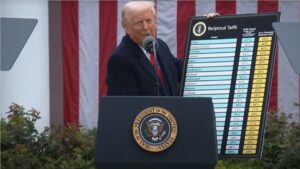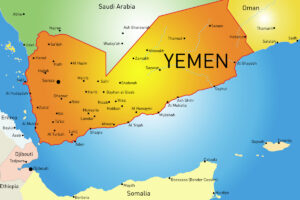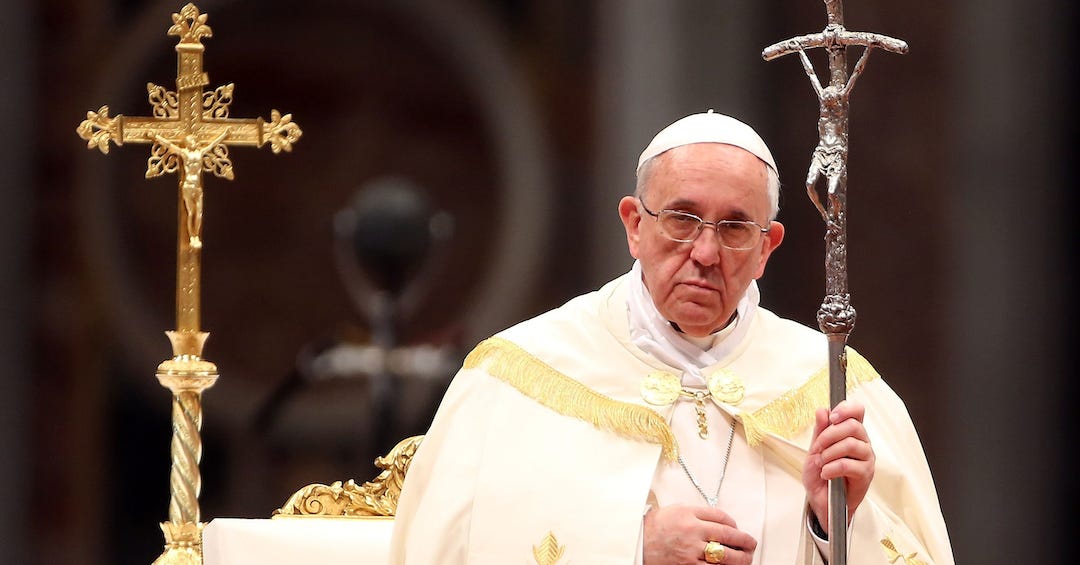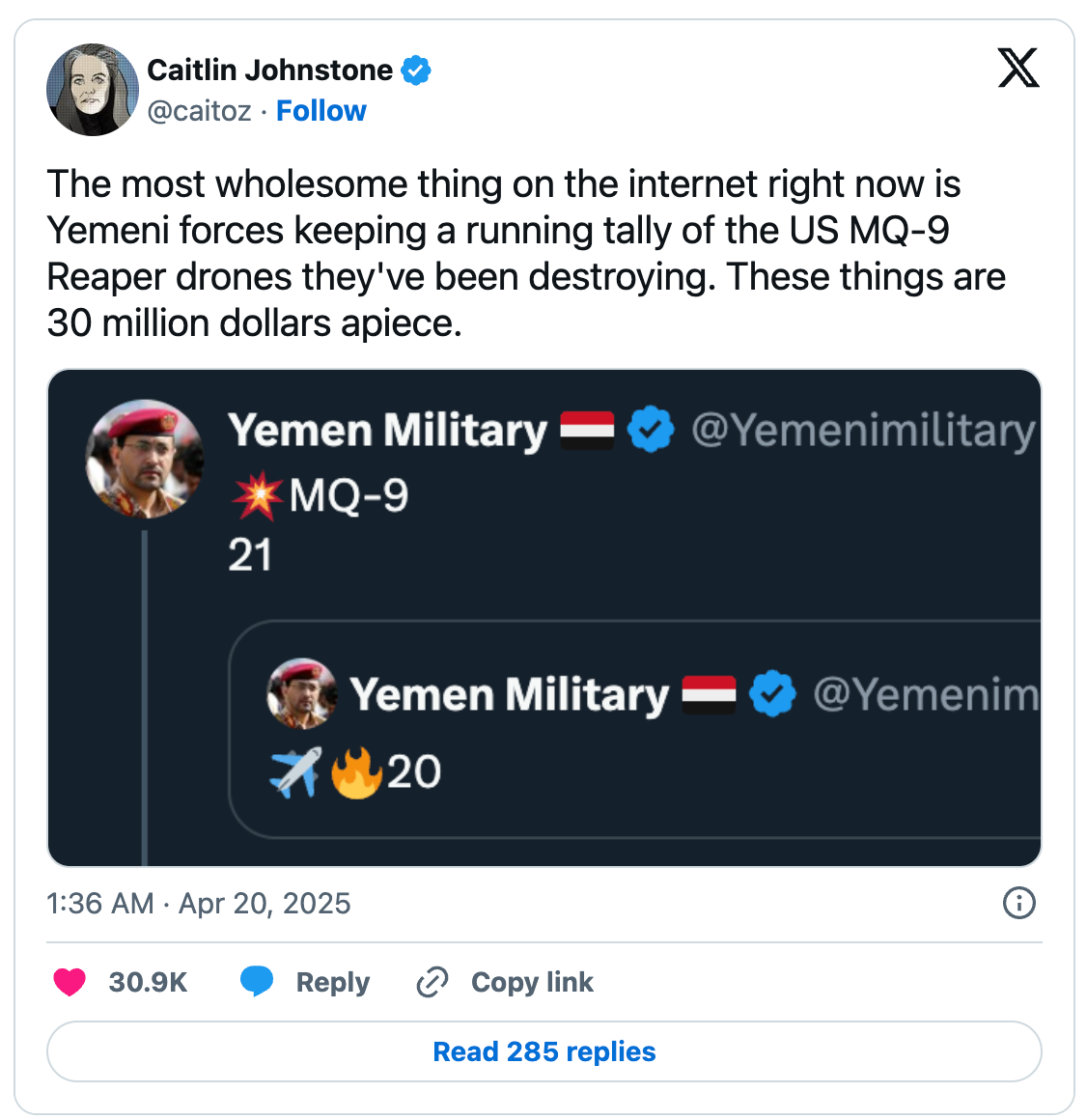When President Donald Trump declared at mid-month he had no power to return an innocent man —Kilmar Abrego Garcia—that his staff mistakenly dispatched to El Salvador’s notorious Terrorism Confinement Center (CECOT), one of the arguments used was non-interference in a foreign country’s affairs. The other was that once someone has crossed the border, U.S. courts “cannot grant relief.”
The Supreme Court’s unanimous ruling April 10, however, supported a lower court’s order that the Trump regime must facilitate Garcia’s “release from custody in El Salvador and to ensure that his case is handled as it would have been had he not been improperly sent to El Salvador.” And to report “the steps it has taken and the prospect of further steps.” Part of that ruling, added by three justices , was providing Garcia with the U.S. Constitution’s due-process right to determine his innocence by trial. They dismissed Trump’s legal team’s two arguments as “plainly wrong.”
Added to the mix was El Salvador’s president Nayib Bukele, visiting Trump, who chimed in to state he didn’t “have the power to return him to the United States.” A preposterous claim for a dictator.
Such Trump-type arguments also fly in the face of presidential precedents set in American history, beginning with George Washington in dealing with the Barbary pirates in the 1790s off the North African coast. They would capture merchant ships carrying American goods and imprison the crews unless “tributes” were paid by the young U.S. government. Washington had learned his lesson. So early in his second term, he sent a three-man diplomatic delegation to negotiate tribute amounts to Algiers, Tunis, and Tripoli to successfully free 83 American sailors. Such bribery certainly was presidential interference in foreign-country affairs. In different ways, it still is.
How does that differ in principle from U.S. interference in foreign countries and Trump paying a $6 million tribute to Bukele to imprison 238 men , mostly Venezuelans , all denied due process about gang membership? He plans to send more, even U.S. citizens .
A legal reprise of the Garcia case reveals why he never should have been among those—also denied due process—thus, illegally flown to El Salvador imprisonment.
Kilmar Abrego Garcia was never a gang member in his native El Salvador or the U.S. In sworn testimony and documentary evidence given to a Maryland federal court, he and his family were constantly targeted for extortion by a Barrio-18 gang in El Salvador because of their successful food business in Los Nogales. When its leaders tried to recruit Kilmer’s older brother, the family sent him to relatives in Maryland and to eventual U.S. citizenship. When the gang then demanded their 16-year-old Kilmar or they would harm the entire family. They paid up—but sent him to the Maryland family to seek asylum from that gang.
Garcia was never in trouble in either country. He began working in construction with an eye to eventually joining the sheet-metal industry as a journeyman and joining its union. He was 24 when he decided to change jobs and in 2019 went to Home Depot seeking one. So did three suspects of MS-13 membership. The county police swooped in and collared all four, but in fairness never included Garcia in the arrest records.
Meantime, Garcia married a citizen with two children and a third on the way. His wife sued the government about the false arrest. The judge did heavy interrogation about criminal conditions in Nogales as justification for Garcia’s fears for his life from Barrio-18 retaliation. Strong evidence convinced the judge to bar his removal to El Salvador “due to a credible fear of persecution.”
The lawsuit triggered ICE’s attention, however. Its agents seized and detained Garcia for weeks to deport him through the “removal” procedure, but were stymied by the previous judge’s protection ruling. By that time, he applied for asylum and did the annual check-ins with immigration officials.
Interestingly in the Garcia case, for all the remarks about non-interference in El Salvador’s affairs, in April 2017 when Trump was just inaugurated as president, he wangled the release from Egypt’s dictator president Abduel-Fattah el-Sissi’s of an Egyptian-born woman who became an American. She did three years of “confinement” on bogus charges of child abuse at her charity agency before finally being acquitted. Trump seemingly taking credit for her release, grandly chartered a U.S plane to Cairo to bring her home. A year later he was triumphant about winning release of three Americans from North Korea.
Yet it was sour grapes from him in December 2022 when President Joe Biden wrested national women’s basketball star Brittney Griner in a prisoner exchange from a nine-year sentence in Russia for carrying a cannabis compound into the country. Or in August 2024 when Biden succeeded in getting three Americans—one was a Wall Street Journal reporter—released from Russia in another prisoner exchange.
Trump insinuated on his social media that cash had been exchanged by Biden and added: “Our ‘negotiators’ are always an embarrassment to us!”
In other words, Trump was certainly well aware that foreign interventions for prisoners is nothing new to American presidents using either cash or President Teddy Roosevelt ‘s foreign policy of “speak softly, but carry a big stick,”
The Supreme Court’s April 7 unanimous ruling that the Trump’s administration had to get Garcia’s release from El Salvador has been awakening the public about the laws protecting us individually and the three separate powers of Constitutional government. That Congress, not presidents, make the laws. The Supreme Court determines their constitutionality, and the president must “faithfully” carry out its orders.
In its handling of this case, the high court ruled that Trump’s administration must: “comply with its obligation to provide Abrego Garcia with due process of law, including notice and an opportunity to be heard, in any future proceedings. It must also comply with its obligations under the Convention Against Torture.” The court mainly agreed with a previous U.S. District court ruling that the government must “facilitate” Garcia’s release from custody in El Salvador. That judge had ordered Trump’s legal team to report daily about their progress.
The only news about Garcia, has been from the U.S. embassy in El Salvador which on April 12 reported: “…Garcia is currently being held in the Terrorism Confinement Center….He is alive and secure in that facility.”
Now, unlike Washington’s Day, the 1997 federal Leahy Law forbids using taxpayer revenue for “assistance to foreign security forces that have credible allegations of human rights such as torture, extrajudicial killing, enforced disappearance, or rape.” A State Department report of 2023 cited El Salvador prisons’ for guards’ regular beatings of inmates and electric shock treatments, and other abuses.
Upon learning Trump’s people had done nothing about Garcia by April 15, that district judge ordered four of his officials “to provide documentation and answer questions under oath about what steps they had done to comply” with her previous order by April 28. Penalty for non-compliance would be a contempt of court ruling and fines or imprisonment. A Trump pardon would add yet another charge in impeachment proceedings and this time an ouster by a Senate trial.
Ignoring the rulings supporting Garcia’s Constitutional due-process rights and the power of the courts’ branch of government, Trump’s plan is more of the same—for all American citizens who also would be denied those rights. After all, he urged Bukele to build five more mega-prisons (capacity: 40,000 ) to house them. He obviously expects American taxpayers to foot the bills for construction, staff salaries, and maintenance.
Moreover, his counterterrorism adviser just announced that supporters of Garcia were aiding and abetting criminals and terrorists” and, thus, committing a federal crime?
That, of course, would include Supreme Court members, the judges involved in the Garcia opinions, his Maryland Senator, several House members —and eventually all who support Constitutional rights such as due-process trials in this country.
Since then, yet another instance of wrongful seizure for the El Salvador prison has come to light about a 20-year-old Venezuelan brought into the U.S. as a child. A Maryland federal judge’s opinion on this asylum lawsuit was that it violated “a legally binding, court-approved settlement last year of a lawsuit against the summary deportation of migrants who arrive as children.”
On Inauguration day, Trump swore to obey the oath of office —“and will to the best of my ability, preserve, protect and defend the Constitution of the United States.” Unless a new Amendment is passed to limit due process to U.S. citizens or to delete it, that right is included for all residents of this country illegal or not. But his towering rage at due-process appeared in late April both on his social media page and the next day in a White House press conference. It furnishes prime evidence for another impeachment—and this time a Senate trial for his ouster. Or, as in the case of former president Nixon facing that fate, key Republicans march to the Oval Office and successfully demand Trump resign.
Said he on record about the 21 million illegals he intends to deport:
“We cannot give everyone a trial, because to do so would take…200 years.” His false assumption is, of course, that in future all those kidnapped and dispatched to his five taxpayer-funded El Salvador prisons—including his political enemies—are “violent criminals and terrorists.”
Fortunately, the 4th District Appeals court just agreed unanimously to quash an emergency appeal by his administration against the contempt of court rulings for not returning the kidnapped and given due-process rights. The longtime (1983) Reagan-appointed judge, Harvie Wilkinson III, wrote the court’s ringing opinion about Trump’s snatching Garcia without those due-process rights. It also sets precedent to protect those Trump regards as “home-grown” enemies:
“It is difficult in some cases to get to the very heart of the matter. But in this case, it is not hard at all. The government is asserting a right to stash away residents of this country in foreign prisons without the semblance of due process that is the foundation of our constitutional order. Further, it claims in essence that because it has rid itself of custody that there is nothing that can be done. This should be shocking not only to judges, but to the intuitive sense of liberty that Americans far removed from courthouses still hold dear.”
The post Will Trump Keep Flouting Constitution and Courts? first appeared on Dissident Voice.This post was originally published on Dissident Voice.















